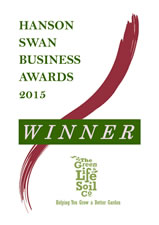| item(s), Total: $0.00 View Cart |
| Shopping cart is empty. |
Hello, and welcome to August!
There's still plenty to do in the garden right now and we hope we've got inspiration & tips to get you motivated and active in your garden when those sunny windows are here. Paul, Isaac & I had a fabulous time away for several weeks in July - visiting the UK, and spending a few days in Greece. Whilst UK summer wasn't marvellous, the heatwave in Greece certainly gave us a taste of warmth while we were away! We got to visit some lovely gardens in England and were inspired by a visit to The Eden Project - if you ever head across to Cornwall I'd highly recommend a visit. The Eden Project is an amazing series of gardens (and climate controlled biospheres) that showcase plants from around the world with a huge focus on biodiversity and education - all built into a disused quarry. The site covers 11.5 hectares and has an extensive kitchen garden that supplies their cafe. (There's a photo at the end of the newsletter of the Project site.) Back home, our weeds are waste high, something's been into the broccoli heads and mowed down the broad beans (planted before we left), and we have loads of work to do before Spring! Oh well, the garlic is struggling on between the weeds and there may be the odd self sown treasure hiding in there - once we get the chance to explore! We'll get to tame it again in stages, I'm sure. There's always something happening at GLSC - I know that since we moved to our 'new' premises (2.5 years ago!) some of you have missed the various workshops we used to run from time to time. The good news is that there's things in the works to trial some in conjunction with the Jane Brook Fresh Cafe on the corner of our shared site here on Wilson Road. There are new owners of the business; they've expanded the cafe & offerings (now doing barista coffee - bring your keep cup!), and are keen to work with us to provide the space... so keep your eyes on newsletters & social media for developments. We're excited!!! We hope to see you soon @ The Green Life Soil Co In this newsletter:
Jobs to do in the August garden
What to Plant NOW
You can also begin to start some spring/summer crops seeds off in trays - but my advice would be to do a few only. There's still plenty of time, and no need to risk all your seed on one roll of the dice. Remember our free downloadable When to Sow guide for Perth also has some handy tips on germination temperatures and times - check it out here. We've recently stocked up on spring/summer seed varieties (including lots of tomatoes) with more coming in very regularly - so come on in and stock up. It's a great time of year to plant lots of herbs now - still time to grow Coriander, for example. Don't leave it too long; it doesn't like the heat. If you'd like more information on timing of propagating herbs - we have a free downloadable "Planting Guide for Herbs" here. At GLSC we carry a good range of edible and medicinal herbs in the Swan Valley Nursery range; and also seeds if you'd prefer to start them off that way.
Asparagus and Rhubarb crowns have arrived at GLSC! Come on in and get one or several! (Asparagus is priced at $10 ea or 5 for $45. Red stemmed rhubarb [Ever Red] is $15 per crown). See our quick growing tips below:- Growing Rhubarb: Handy tips
Cater to Its Heritage: Originating from Siberia and the Himalayas, rhubarb thrives with special attention in Western Australia's dry Mediterranean climate. Understanding its background helps you provide the nurturing it requires. Nutrient-Rich Soil: Rhubarb craves enriched soil. Enhance its growing medium with compost and manure to ensure it can thrive (or try our Vegetable Concentrate blended in with your soil or potting mix). Maintaining well-fed soil lays the foundation for a successful harvest - feed annually with good compost. Mulch and Hydrate: Shield your rhubarb with a generous layer of mulch during the scorching summer months. Keep a watchful eye for wilted leaves, indicating thirst. Regular watering is crucial, especially when temperatures rise. Shade-Loving Sentinel: Rhubarb prefers partial shade over direct sunlight. Choose a spot with almost full shade for optimum growth – this ensures it thrives without being scorched by intense summer sun. Container Comfort: Growing rhubarb in a large pot allows flexibility, enabling you to move it to match the changing seasons. Containers offer an adaptable solution to accommodate rhubarb's shade and water preferences. (Our large 75L grow bags with handles also work well.) Seedlings and Crowns: You'll find rhubarb in two forms: seedlings available for most of the year and crowns during winter. Opt for crowns if you're eager for quicker harvests. They're divided mature plant sections, providing an advantage over seedlings in terms of faster maturity and robustness. The First-Year Pause: Even if you plant a crown, refrain from harvesting during the initial year. Grant your rhubarb the time it needs to establish its roots and vigor for seasons to come. Guardians of Longevity: With proper care, rhubarb plants can flourish for up to 15 years. Give them the attention they deserve, and they'll reward you with bountiful harvests year after year. Cautionary Notes: Be cautious with rhubarb's roots and leaves – both are poisonous. Avoid consumption. Transform rhubarb leaves into a natural insect spray by boiling them with water and soap flakes. Allow to cool, and make sure you label the container if not used immediately!! When harvesting stems, break them downwards to prevent damage to the crown. Rhubarb is hardy against frost, but keep an eye out for potential fungal issues in damp conditions. Companion plants like onions, garlic, and brassicas complement rhubarb's growth. Growing Asparagus: Handy tips
Timing is Key: Winter is when you'll find mature asparagus crowns available for replanting. Spring is the time for sowing seeds, and you'll find asparagus seedlings year-round. Crowning Glory: Opt for crowns to fast-track your harvest journey. These mature plants offer 2nd-year harvests, while seedlings require patience for 3 – 4 years at least. Sexual Distinction: Asparagus plants reveal their genders through flowering. Female plants produce red seed pods, leading to thinner spears. Remove flower heads for better spear growth or choose male plants for a thriving harvest. (Unfortunately it's lucky dip - we are unable to determine male from female plants.) Ferny Heights: Surprisingly, asparagus grows tall! unpicked spears grow into ferny foliage, reaching 1.5 meters high. Plan your planting site with this foliage growth in mind. Harvesting Wisdom: Harvest asparagus spears once they reach a reasonable thickness (at least pinky size!). Balance is key – allow some spears to mature into foliage to sustain plant growth and photosynthesis. Planting Perfection: Create a 30cm-wide & deep trench to plant crowns. Position them atop a soil mound, spreading the roots. Space crowns 40 – 50cm apart and cover with soil and compost mix. Mulch and Nourish: Mulch trenches to curb weeds. A feeding/straw type mulch is ideal. Asparagus thrive in neutral to slightly alkaline soil. Seasonal Symphonies: Anticipate spears in late winter to early spring, flourishing into summer. As ferns yellow in late autumn, cut them back to ground level and cover the soil with compost and manure. This is when plants are dormant. Keep the space weeded and wait for the plant to reawaken in spring. Nutrition and Care: Shower your asparagus with attention – feed them well for bigger, fatter spears. Mulching in summer ensures happy plants that can thrive on weekly deep watering. Parsley & basil make good companion plants. Frost in Your Winter Garden
Understanding Frost FormationImagine water vapor transforming into delicate ice crystals on chilly surfaces – that's frost for you! During winter, the sun's rays are gentler, and nights grow longer, causing temperatures to plummet. On those cold, clear nights, without cozy blankets of clouds to retain warmth, daylight's accumulated heat dissipates swiftly. Consequently, temperatures nosedive, and the moisture suspended in the air transforms into frost, blanketing the ground. The Frosty Peril to PlantsFrost doesn't merely coat the landscape; it can wreak havoc on your plants. The crux of the issue lies in the freezing of water within the plant cells. As ice forms and expands, it places pressure on the cell structure, often causing it to rupture. But there's a way to rescue frost-kissed plants from impending doom: by giving them a gentle spritz of water. This act elevates the leaf temperature and initiates a gradual thawing process, limiting damage. Remember, timing is of the essence – act before the sun touches the plants the next morning. Strategies for Frost Mitigation in Your WA GardenCrafting a frost-resilient haven for your garden is a blend of understanding microclimates and implementing practical measures. In the chilliest corners of your yard, where open spaces meet the sky or low-lying pockets invite cold air, it's best to avoid planting delicate plants. Alternatively, you can prepare to shield them on chilly nights. This is where knowledge of your garden and it's microclimates can help enormously. Do you have a warm spot (sun trap) on the north side of your house? A sunlit brick wall cradles warmth during the day, releasing it like a cozy embrace throughout the night – the perfect retreat for tender plants during winter. Utilise the protective cover of eaves, patios, verandahs, and evergreen trees that can provide protection with their branches. Move your plants to these cozy alcoves whenever possible. For potted plants, offer them refuge indoors or beneath cover when frost threatens. In the case of immovable or hefty plants, improvisation is the key. Shelter them with materials like cardboard boxes, old sheets, hessian cloth, or shadecloth. Just be cautious not to rest the covers on the foliage – construct a simple stake shelter to drape materials over, ensuring your plants remain unscathed. Don't forget to unveil them in the daytime. Your Vegetable Bounty and Frost ProtectionVegetable gardens may also require a shield against frost. Fashion row covers with bent polypipe or fencing wire, topped with a protective cover. For individual seedlings, repurposed plant pots or cut-off soft drink bottles can serve as cloches to protect plants. Yet, remember the golden rule – always remove the covers when the threat has passed. Luckily, many of our winter vegetables cope very well with frost. Brassicas (eg. cauliflower, broccoli, kale, cabbage), carrots, beetroot etc. All do just fine. And some plants are reputed to be sweeter with a touch of frost - especially brussel sprouts, parsnips and turnips. Mulch Matters
The Oasis of WaterHere's a surprising ally against frost: water bodies. A pond or swimming pool can gather ample heat during the day, infusing the surrounding air with warmth during the night, providing protection to surrounding plants. Reviving Frost-Bitten PlantsIf frost has already struck, don't fret. Don't be tempted to trim off the frost burnt tips – it actually acts as a shield in case another freeze arrives. Once the warmer weather arrives, look for emerging new growth. When new life sprouts and the chance of frost has gone, trim away the affected leaves & branches and your plant will soon be rejuvenated. Water your frost-damaged plants sparingly – they've lost foliage, which means they don't need as much water. Similarly, don't fertilise until after new growth has appeared. Over feeding can promote sappy new growth which can make the (already weakened) plant more susceptible to things like aphids and scale. Just give the plant time! With these tactics, your garden in Western Australia can flourish even in the face of a frosty winter! VIP Special Offer
In order to help out, this month we've got our premium CERTIFIED ORGANIC SEED RAISING MIX half price to members. Spend $60 or more with us and you can pick up a bag of our seed raising mix HALF PRICE - $7.00. Online shoppers - you'll need to be logged into the Members section of our website in order to take advantage of the deal. Offer is in place while stocks last & until close of business, 31st August 2023. Photo competition
It's always super cool to see the variety of photos - we've received vegie harvests, giant cauliflowers, verge garden makeovers, new garden establishment, and autumn trees in splendor! So we pick someone at random because - really - ALL of the gardens are wonderful; we don't judge on expanse or grandeur or how much money has been spent on landscaping. Each photo shows someone's interaction with plants and nature and that is fabulous. This month, we've chosen Julie - who sent in these photos of her mum's Spearwood garden - she had this to say... "These are some photos of my Mum Jan Raffaele’s companion patch - insanely abundant after the rain!" It's obvious Jan has a green thumb and likes to pack in as many plants as possible; sometimes it works to assist with companion planting (as Julie said) and can help confuse pests. The better your soil, the more plants can thrive together and they'll assist with building a varied and healthy microbial population too! Thanks Julie & Jan - enjoy your prize & for everyone else who didn't win (this time) remember to keep sending those pics in because next time it might be you! Retailer UpdatePlease support your local independent retailer who supports us! The specialist retailers listed here will be happy to give you gardening advice and help you with our products - please call to check what lines they carry as they can't stock all of our products (but may be willing to get stock in for a custom order - if you ask nicely!). Some of these fabulous retailers also offer a home delivery service (marked with *) - so why not go local? (Please contact the store directly for details.)
Ardess Nursery (Albany) 9842 9952 THANK YOU for being part of our Green Life family! We hope to see you in store soon. Check out our newsletter next month & stay up to date with our Facebook and Instagram pages for announcements, stock arrivals and general good gardening vibes!
|



 We're now transitioning to the Noongar season of Djilba - the 'first spring' - a season of transition between what we recognise as Winter and Spring; wildflowers are starting to appear, and many native animals are breeding or have bred and are raising their young. Hopefully we can expect more rain, but we can also have some clear and sunny days with cold temperatures. The weather's certainly been cold - a number of frosts have left some damage in the garden; and it seems a bit more rain is needed to fill up the creeks/dams before summer. Let's cross our fingers for a nice balance of sun & rain in the weeks to come.
We're now transitioning to the Noongar season of Djilba - the 'first spring' - a season of transition between what we recognise as Winter and Spring; wildflowers are starting to appear, and many native animals are breeding or have bred and are raising their young. Hopefully we can expect more rain, but we can also have some clear and sunny days with cold temperatures. The weather's certainly been cold - a number of frosts have left some damage in the garden; and it seems a bit more rain is needed to fill up the creeks/dams before summer. Let's cross our fingers for a nice balance of sun & rain in the weeks to come. Many of the gardens we visited - large and small - had a focus on 'rewilding' and towns and villages were promoting 'wild gardens' to encourage insects and animals. In the garden centres (which were AMAZING!) they promoted flowering & bee friendly plants, insect hotels, bird & bat boxes, peat-free composts & soil improvers, and sensory gardens. It was great to see the earth care message filtering into mainstream horticulture. (Apparently 'No-Mow May' was even a thing to support beneficial insects!) Pictured below/right is from The Lost Gardens of Helligan - also in Cornwall.
Many of the gardens we visited - large and small - had a focus on 'rewilding' and towns and villages were promoting 'wild gardens' to encourage insects and animals. In the garden centres (which were AMAZING!) they promoted flowering & bee friendly plants, insect hotels, bird & bat boxes, peat-free composts & soil improvers, and sensory gardens. It was great to see the earth care message filtering into mainstream horticulture. (Apparently 'No-Mow May' was even a thing to support beneficial insects!) Pictured below/right is from The Lost Gardens of Helligan - also in Cornwall. Jobs to do in the August gardenWhat to plant NOW
Jobs to do in the August gardenWhat to plant NOW Rose pruning. If you haven't already done so, it's time to give Roses and other perennial flowering plants their winter prune to encourage a flush of spring blossoms.
Rose pruning. If you haven't already done so, it's time to give Roses and other perennial flowering plants their winter prune to encourage a flush of spring blossoms.  Select & plan your seed propagation. You can start to raise some Spring vegies. A few seeds in trays that you can move around and keep warm will give you a great head start (providing they survive the rest of winter). A few seeds sown every few weeks will mean you'll jag the right time early on - covering your bets. GLSC makes a premium Certified Organic Seed Raising Mix - perfect to get you growing. And check out our VIP offer this month to get your hands on a HALF PRICE bag!
Select & plan your seed propagation. You can start to raise some Spring vegies. A few seeds in trays that you can move around and keep warm will give you a great head start (providing they survive the rest of winter). A few seeds sown every few weeks will mean you'll jag the right time early on - covering your bets. GLSC makes a premium Certified Organic Seed Raising Mix - perfect to get you growing. And check out our VIP offer this month to get your hands on a HALF PRICE bag!  Get ready to feed up your fruit trees. It is possibly a little early at the start of the month, but heading to the end of August/early September (and depending on the weather) it's time to feed up your Citrus trees, and your deciduous trees that will be emerging from Winter dormancy. We recommend a good slow release fertiliser or soil improver that contains rock dust (or use
Get ready to feed up your fruit trees. It is possibly a little early at the start of the month, but heading to the end of August/early September (and depending on the weather) it's time to feed up your Citrus trees, and your deciduous trees that will be emerging from Winter dormancy. We recommend a good slow release fertiliser or soil improver that contains rock dust (or use  Another option for Citrus Gall Wasp - try our super fine kaolin clay product "
Another option for Citrus Gall Wasp - try our super fine kaolin clay product " Plan. If you're going to build new garden beds, or relocate existing ones, now's the time to plan and build. If you're wanting to go no-dig and use up some decaying plant material & weeds, it's a good time to start so things can begin decomposing. Solarise soil with plastic to cook weeds before you mulch any new paths, etc. See our
Plan. If you're going to build new garden beds, or relocate existing ones, now's the time to plan and build. If you're wanting to go no-dig and use up some decaying plant material & weeds, it's a good time to start so things can begin decomposing. Solarise soil with plastic to cook weeds before you mulch any new paths, etc. See our  Weed your garlic! (actually - weed all your vegie garden) but garlic in particular dislikes competition, and you'll want it to be doing as best as it can over the next couple of months, as bulbs will be starting to thicken up now. Give your garlic a light topdressing of blood & bone. The work you do now will pay off in late Spring when it's harvest time.
Weed your garlic! (actually - weed all your vegie garden) but garlic in particular dislikes competition, and you'll want it to be doing as best as it can over the next couple of months, as bulbs will be starting to thicken up now. Give your garlic a light topdressing of blood & bone. The work you do now will pay off in late Spring when it's harvest time. There's still time to get some crops in the ground of potatoes (pictured right), onions, peas. (Scroll through our '
There's still time to get some crops in the ground of potatoes (pictured right), onions, peas. (Scroll through our ' Vegies to consider growing now include: Artichokes (Globe & Jerusalem), Asian Greens, Asparagus (pictured right), Beans, Broad Beans, Beetroot, Cabbage, Carrots, Celery, Choko, English Spinach, Kale, Kohl Rabi, Leek, Lettuce, Onion, Parsnip, Peas, Potato, Radish, Silverbeet, Snow Peas, Spring Onion, Turnip.
Vegies to consider growing now include: Artichokes (Globe & Jerusalem), Asian Greens, Asparagus (pictured right), Beans, Broad Beans, Beetroot, Cabbage, Carrots, Celery, Choko, English Spinach, Kale, Kohl Rabi, Leek, Lettuce, Onion, Parsnip, Peas, Potato, Radish, Silverbeet, Snow Peas, Spring Onion, Turnip. Embrace Rhubarb's Old Fashioned Charm: If you haven't yet tried growing rhubarb, consider it as your next gardening adventure. It's quite manageable with the right care, and it adds a delightful touch to your garden. As well as its traditional role in desserts, you can also use Rhubarb to make wine (Granny knew a thing or two!).
Embrace Rhubarb's Old Fashioned Charm: If you haven't yet tried growing rhubarb, consider it as your next gardening adventure. It's quite manageable with the right care, and it adds a delightful touch to your garden. As well as its traditional role in desserts, you can also use Rhubarb to make wine (Granny knew a thing or two!). Perennial Perfection: A truly rewarding addition to your vegie garden, asparagus plants can last for 25 years +; so make sure you choose the planting site well.
Perennial Perfection: A truly rewarding addition to your vegie garden, asparagus plants can last for 25 years +; so make sure you choose the planting site well. In the Western Australia's gardens, the delicate balance of nature's elements can pose challenges. While many parts of Perth bask in frost-free conditions, those residing in the hills and other distant regions need to be extra mindful of winter frosts and how to shield their cherished plants. Our own garden has taught us the importance of preparation, as we've sadly lost a few beloved plants due to frost's unwelcome touch. So, let's delve into the realm of frost protection and arm you with knowledge to safeguard your garden if you happen to reside in a frost-prone area.
In the Western Australia's gardens, the delicate balance of nature's elements can pose challenges. While many parts of Perth bask in frost-free conditions, those residing in the hills and other distant regions need to be extra mindful of winter frosts and how to shield their cherished plants. Our own garden has taught us the importance of preparation, as we've sadly lost a few beloved plants due to frost's unwelcome touch. So, let's delve into the realm of frost protection and arm you with knowledge to safeguard your garden if you happen to reside in a frost-prone area. While we always advocate using mulch around your garden, it can trap pockets of cold air. Moist, compact, and exposed soil absorbs and radiates heat effectively, often enjoying 1 to 2 degrees Celsius warmer air temperature compared to mulched or grass-covered soil. If you have sensitive plants, you may like to scrape off mulch over the winter months. Once frost danger has passed, replace your mulch to retain the winter moisture as long as you can.
While we always advocate using mulch around your garden, it can trap pockets of cold air. Moist, compact, and exposed soil absorbs and radiates heat effectively, often enjoying 1 to 2 degrees Celsius warmer air temperature compared to mulched or grass-covered soil. If you have sensitive plants, you may like to scrape off mulch over the winter months. Once frost danger has passed, replace your mulch to retain the winter moisture as long as you can. It's time to get ready for SPRING - it's just around the corner! So if you're wanting to get a head start on your summer vegies, now's the time to stock up on seeds, and over the coming weeks, get some started in readiness for growing on & planting out.
It's time to get ready for SPRING - it's just around the corner! So if you're wanting to get a head start on your summer vegies, now's the time to stock up on seeds, and over the coming weeks, get some started in readiness for growing on & planting out. I'm pleased to say this month we received quite a few photos as entries into our Photo Competition. Thank you & keep them coming in! Remember someone is chosen each month to win a $50 store credit with us; so just snap & send regularly to be in with a chance - you can enter every month! Photos can be emailed (use the subject line 'photo competition') or messaged via our Facebook page.
I'm pleased to say this month we received quite a few photos as entries into our Photo Competition. Thank you & keep them coming in! Remember someone is chosen each month to win a $50 store credit with us; so just snap & send regularly to be in with a chance - you can enter every month! Photos can be emailed (use the subject line 'photo competition') or messaged via our Facebook page. Daisy Field Organics - Fremantle
Daisy Field Organics - Fremantle




















